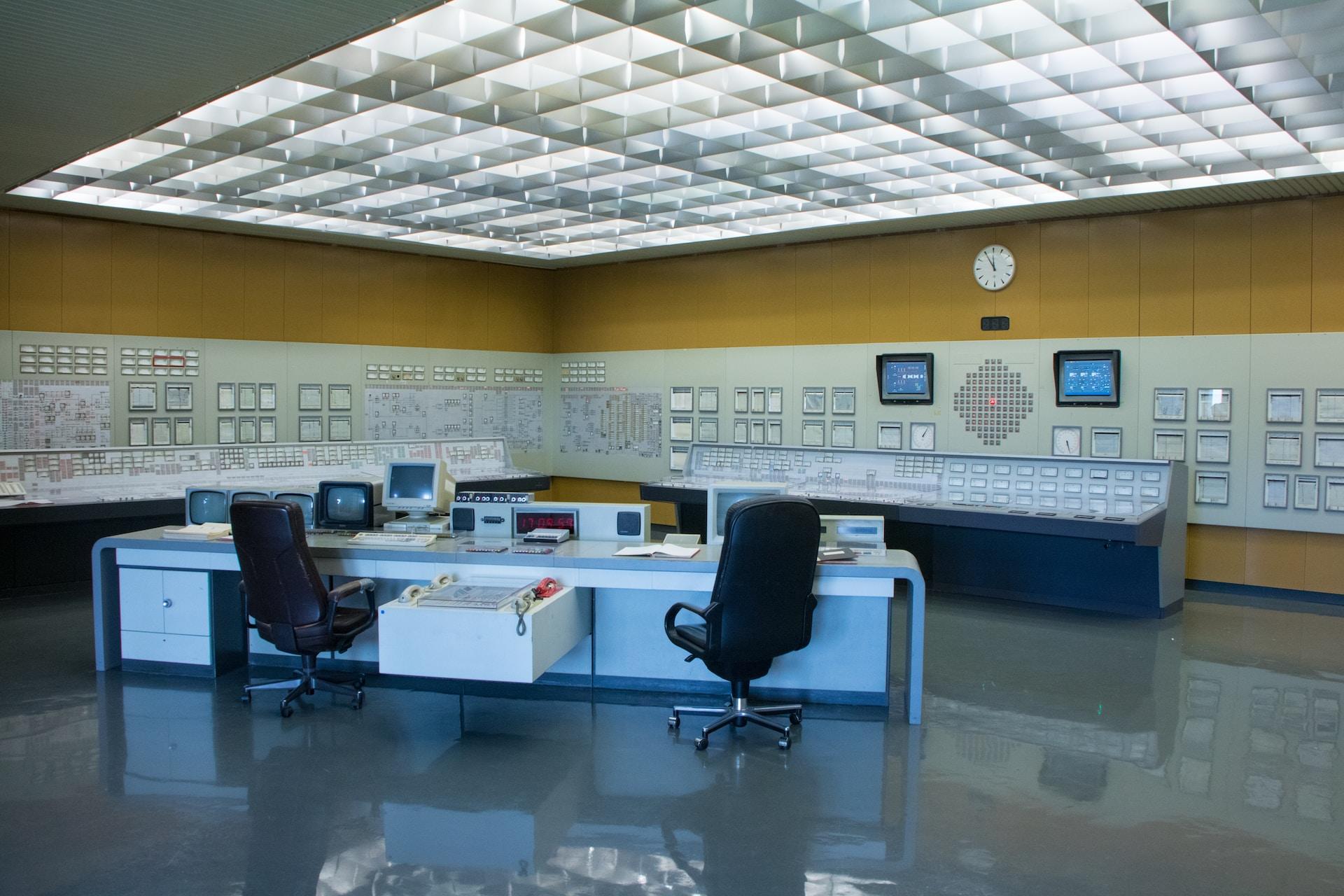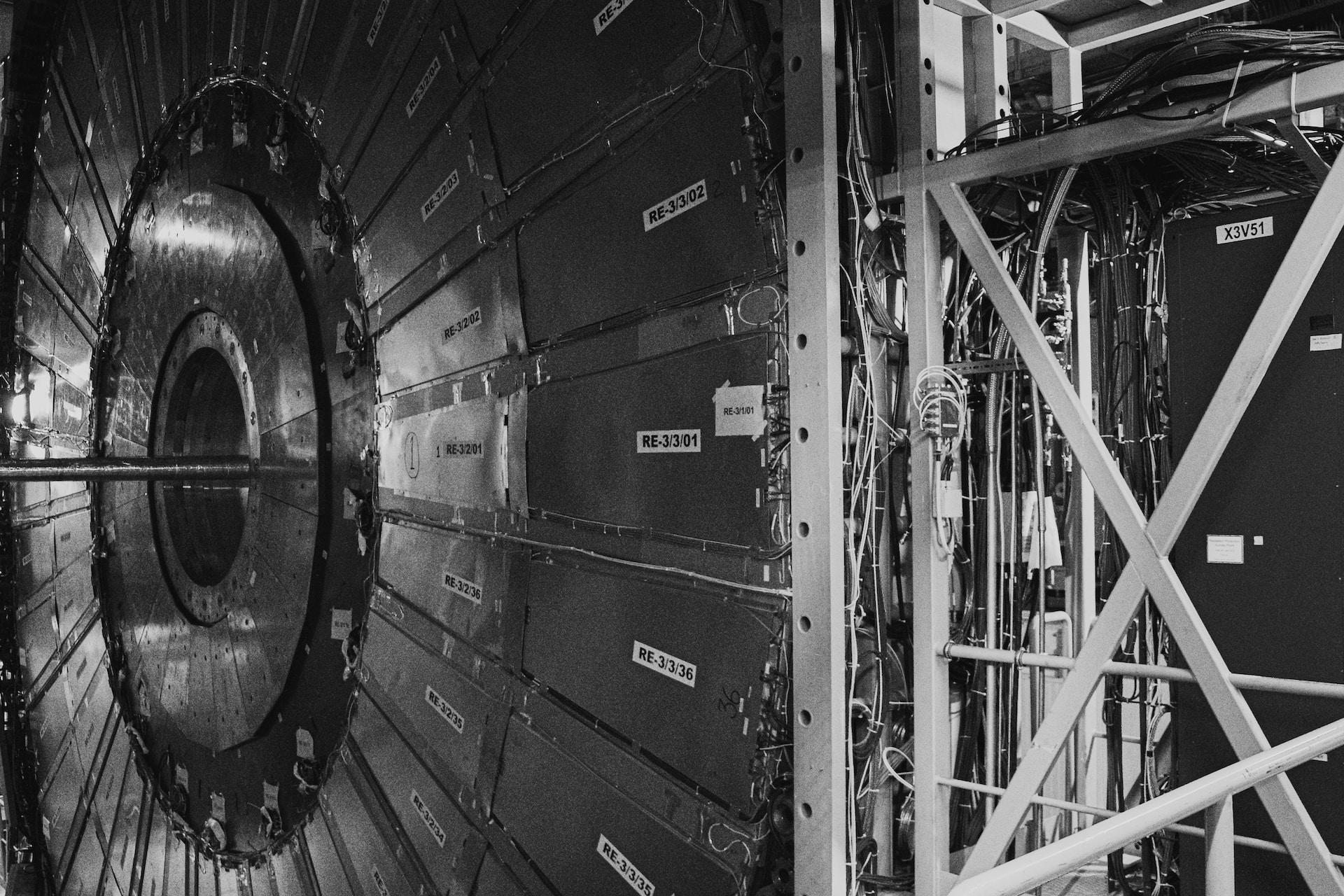Is nuclear physics a good career? It is if you're interested in science, enjoy solving problems, and want a stable job. Nuclear physicists work in several areas: clean energy, medical research, national defense and academic research. The field is demanding, but offers clear benefits: job security, strong income and the ability to contribute to meaningful work! Those who enter this career often do so for both the subject itself and the real-world outcomes it supports. The demand of nuclear physicists becomes higher and higher each year because it brings eco-friendly and sustainable energy sources, advances the medical field, and ensures safety. Are you ready to get started and learn more?
What do you need to study nuclear physics?

What Nuclear Physicists Do
Nuclear physicists study the structure of atomic nuclei and the forces that affect them. Nuclear physicist jobs form the foundation of several modern technologies! Their daily work can include research, simulations, writing reports, operating equipment and testing theories in labs. Here are some common jobs for nuclear physicists!
Energy
Working in nuclear power development and safety
Medicine
Assisting in imaging and treatment methods such as PET scans and radiation therapy
Security and Defense
Contributing to nuclear safety and systems used in defense technologies
Academic Research
Conducting experiments, publishing findings and mentoring students
Nuclear physicists often work for government agencies, research institutions, universities or private companies. What else can you do with nuclear physics?

Still have a few questions? Here is an explanative video on YouTube, explaining what nuclear physics is!
Why This Career Is in Demand
Several industries depend on nuclear physicists and the demand for nuclear physicist jobs continues to grow! The world needs clean energy. Medical imaging needs to improve and defense systems need oversight and expertise! These areas don’t work without professionals who understand nuclear science. Here are some examples:
- Energy Transition: Countries are looking to reduce fossil fuel use. Nuclear power is one of the few clean-energy options that can produce large amounts of electricity reliably.
- Medical Needs: Tools like MRIs and radiation therapy rely on nuclear physics. As medical technology advances, so does the need for experts!
- Security Concerns: Countries invest in experts who understand nuclear materials, both for safety and policy!
- Research: Universities and labs constantly need physicists to push science forward and develop new applications.
The whole of science is nothing more than a refinement of everyday thinking.
Albert Einstein, in "Physics and Reality," 1936, published in Journal of the Franklin Institute
Are you looking for a physics class online?

Salary Overview
The salary of a nuclear physicist can vary based on factors such as experience, education and the industry in which they work in. Salaries also depend on the country in which they work in. However, on average, nuclear physicists can earn a competitive income, with median annual salaries ranging from $80 000 to $120 000+!

This field of work today earns strong salaries, often exceeding $94,000 annually.
Nuclear physicists who work in industries like nuclear energy, national defense and healthcare may have higher salaries due to the specialized nature of their work.
Salaries in national laboratories or defense work tend to be higher. University positions may offer less but provide access to research and teaching. Private companies and consulting firms may offer performance bonuses or additional benefits!
While financial compensation is important, many scientists are drawn to this fascinating field by their passion for scientific discovery and the potential to make meaningful contributions to science and society! Nuclear physicists are usually paid well due to the technical nature of their work. The salary depends on experience, location and field. Here is a salary estimate for nuclear physics jobs in the U.S.!
- Entry-level: $75,000 to $85,000 per year
- Mid-level: $90,000 to $100,000 per year
- Senior-level: $110,000 to $130,000 or more
| State | Average Salary (Annual) | Notes |
|---|---|---|
| California | $105,000 – $125,000 | High cost of living, many research labs and tech companies |
| Texas | $95,000 – $110,000 | Strong energy sector, opportunities in both public and private sectors |
| New York | $100,000 – $120,000 | Demand in universities, hospitals and national labs |
| Illinois | $90,000 – $110,000 | Chicago area has research centers and medical applications |
| Florida | $85,000 – $105,000 | Moderate demand, growing interest in energy and medical physics |
| Massachusetts | $100,000 – $120,000 | Strong academic and research presence (MIT, Harvard, etc.) |
| Colorado | $90,000 – $108,000 | Federal labs and private aerospace companies contribute to demand |
| Pennsylvania | $88,000 – $105,000 | Mix of academia, nuclear energy, and healthcare sectors |
| Washington | $95,000 – $115,000 | Hanford Site and defense-related nuclear research roles |
| Arizona | $85,000 – $100,000 | Opportunities in energy and healthcare applications |
You can already get started and find qualified physics tutors near me on Superprof today.
Educational Path to Becoming a Nuclear Physicist
Becoming a nuclear physicist takes time and academic focus. A strong background in math and science is needed from the beginning!
Bachelor’s Degree
Typically in physics, nuclear engineering or a related field
Master’s Degree
Optional, but helpful for specialization
Ph.D.
Usually required for research roles or academic positions
Postdoctoral Research or Internships
These provide real-world experience and research opportunities
While in school, students study topics like particle physics, quantum theory, nuclear reactions and advanced calculus. Labs and research projects are part of the training, preparing students for either industry work or academic research.

Are you wondering how nuclear physics is important to society as well as your everyday life?
How to Find a Physics Class Online With Superprof?
When studying and mastering nuclear physics, tutoring can be an indispensable and valuable guidance tool, providing support to students of all ages and proficiency levels. A physics tutor offers adapted and personalized classes, tailored to the students in need. This advantage and educational approach can not be more valued, as it plays an instrumental role in fostering the student's progress and ultimate success in the subject.

Now, where can you find these online resources today? Superprof is a renowned online educational tutoring platform that offers diversified courses in various fields of study.
Thanks to Superprof's proficient tutors and instructors, students can access a large range of different subjects, including history, mathematics, science, dance, art, volleyball and, of course, nuclear physics.
Over 2,000 physics tutors on Superprof offer lessons in advanced topics like nuclear physics, quantum mechanics and particle theory! Many of them hold PhDs or research positions in universities and labs around the world...
When it comes to Superprof's nuclear physics courses, students will find a rich selection of courses with qualified tutors in nuclear physics, quantum mechanics, particle physics and nuclear engineering, as these are fundamental to nuclear physics studies. Whether you're in New York, Boston, Las Vegas, Orlando, Portland or in any other city in the United States, Superprof will offer online courses with qualified tutors throughout the nation.
Nuclear physics is a strong career choice for students who enjoy science and want to work in fields that matter! From energy to medicine to national security, this field touches on key issues of our time. The education path takes effort, but the rewards include good pay, job stability, as well as the chance to contribute to real change. For those interested in learning more or preparing for classes, finding a private tutor online through platforms like Superprof is a smart way to start! Are you ready to progress in nuclear physics with Superprof's qualified tutors?
Is it hard to study nuclear physics? Let's start exploring the depths of nuclear physics together!















I am truly inspired by this article. Know what? I am soon going to take NP as an elective in my final year.
I’m happy you enjoyed the article, Al Tanimu 😊 Good luck in your class!